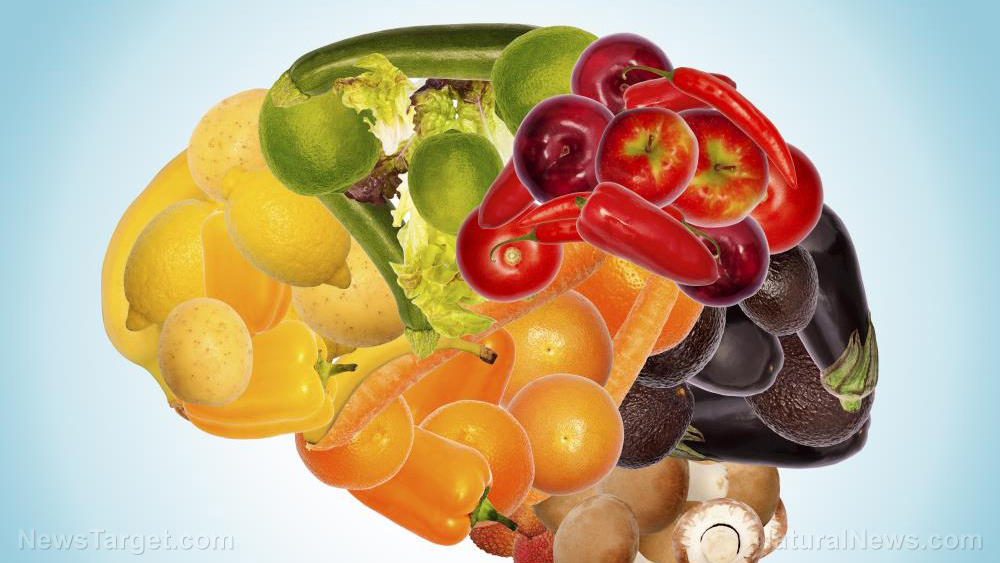Have you heard of the MIND diet? Here’s how eating can help boost brain health
10/04/2019 / By Melissa Smith

One of the many natural ways to boost brain health is to eat the right kinds of food. And there’s a specific diet that can help keep your brain sharp and healthy – the aptly named “MIND” diet.
The MIND diet, which stands for Mediterranean-DASH Intervention for Neurodegenerative Delay, was developed by a team of researchers from Rush University Medical Center in Chicago. It is a combination of the Mediterranean and DASH (Dietary Approaches to Stop Hypertension) diets with a goal to fight dementia and cognitive decline that typically occurs with age. The Mediterranean diet centers around eating fruits, vegetables, fish, olive oil and red wine, while the DASH diet also focuses on fruits, vegetables, and whole grains but is low in sodium. (Related: Eating for your MIND: Scientists combine the Mediterranean and DASH diets to prevent cognitive decline.)
The food groups that the MIND diet focuses on are:
- Beans or legumes
- Berries
- Fish
- Leafy greens
- Nuts
- Olive oil
- Other vegetables
- Poultry
- Whole grains
- Wine
Since the MIND diet is mainly a plant-based diet, it is loaded with nutrients that maintain brain health and prevent cognitive decline. The MIND diet provides vitamins E and C which are antioxidants that protect the brain from free radical damage. A combination of these two vitamins can prevent memory loss and reduce the risk of Alzheimer’s disease and dementia by 60 percent, according to a large study published in the journal Archives of Neurology.
In addition, leafy greens are rich in vitamins B6, B12, and folic acid, which work together to prevent brain degeneration and improve brain function. Vitamin K, which is also found in green vegetables, also contributes to the prevention of Alzheimer’s.
Berries, which are strongly recommended in the MIND diet, also provide potent brain health benefits. Previous studies showed that berries, especially blueberries and strawberries, can reduce neuron loss and enhance memory. These fruits are rich in flavonoids, particularly anthocyanins, that work against two main causes of Alzheimer’s disease: oxidative stress-induced damage and inflammation.
The vitamin B12 and omega-3 found in fish also help improve brain health. Vitamin B12 prevents brain and nerve degeneration, which have been linked to dementia and Alzheimer’s disease. On the other hand, omega-3 fatty acids, particularly docosahexaenoic acid (DHA), are required for healthy brain structure and function maintenance.
The MIND diet also has guidelines on which foods to avoid. These include butter, cheese, fried food, pastries, red meat, and sweets. These foods are either loaded with sugar or trans fat, which are harmful to both the mind and body. Consumption of these foods has been linked to many diseases, including Alzheimer’s disease, cancer, diabetes, obesity, and heart disease.
Why the MIND diet is superior to the Mediterranean and DASH diets when it comes to brain health
The research team looked at the diets of more than 900 volunteers aged 58 to 98 who were enrolled in the Rush Memory and Aging Project, which had been studying the elderly in Chicago since 1997. They used questionnaires to assess the participants’ diets and conducted neurological testing to monitor their cognitive health.
The results revealed that those who followed the MIND diet had a 53 percent lower risk of Alzheimer’s disease, while those who followed the Mediterranean diet showed a 54 percent reduced risk of Alzheimer’s disease. Those who followed the DASH diet experienced a 39 percent lower risk of Alzheimer’s.
However, the MIND diet was considered the most effective because it helped even when not strictly followed. Those who followed the diet most closely had brains that are 7.5 years younger than their actual age. In addition, the MIND diet does not only protect against Alzheimer’s disease, but it also helps you achieve and maintain good brain health and function.
Sources include:
Submit a correction >>
Tagged Under:
Alzheimer's disease, brain function, brain health, brain health boost, brain nutrients, cognition, cognitive health, DASH diet, dementia, Diets, Fresh, grocery, healthy lifestyle, Mediterranean diet, memory, MIND diet, natural health, neurodegenerative disease, nutrients, prevention
This article may contain statements that reflect the opinion of the author
RECENT NEWS & ARTICLES
COPYRIGHT © 2017 ALZHEIMERS NEWS





















